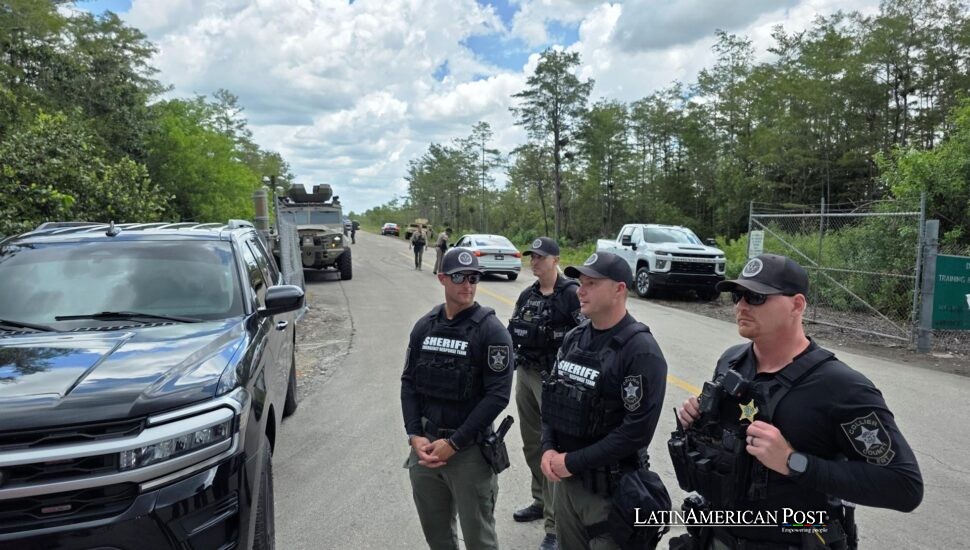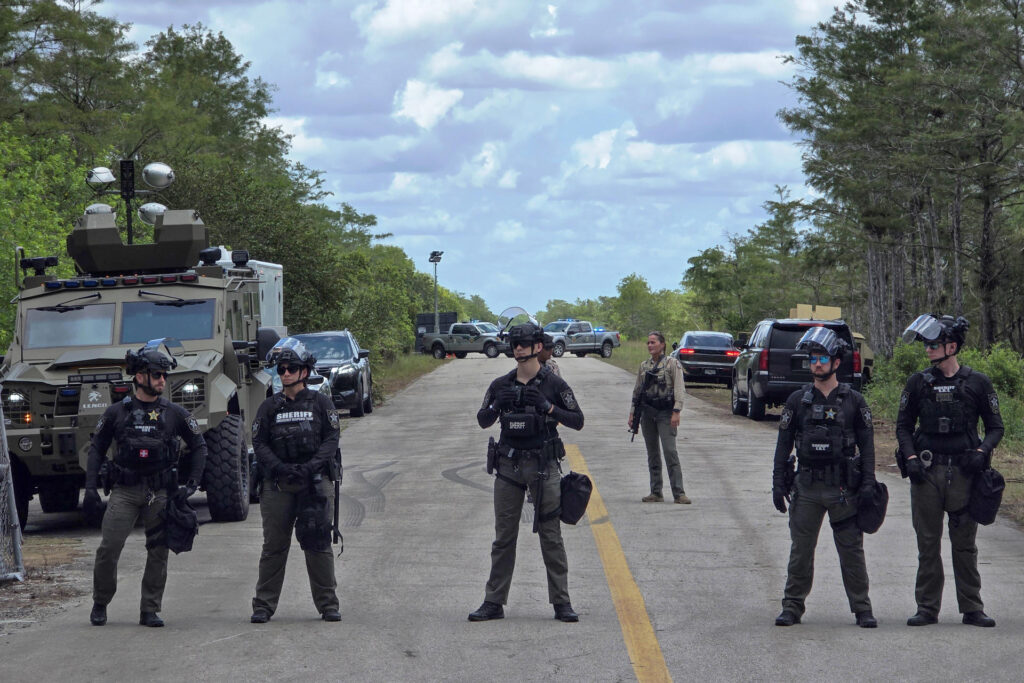Latin Migrants Weather Independence Festivities Hiding from Freedom’s Fireworks

Across Southern California, thousands of mixed-status Latino households will spend the Fourth of July in hiding. With ICE raids sweeping through Los Angeles County, parents are staying indoors, teens are running errands, and a holiday meant to celebrate freedom now feels like anything but.
When Celebration Becomes Caution in East LA
“Mi hijo me pregunta cómo celebraremos, pero le digo que no podemos salir,” said Lennimar Rivas, a Venezuelan mother in Boyle Heights, her voice cracking over the phone with EFE. “My son asks how we’ll celebrate, but I tell him we can’t go out.”
On June 12, the Department of Homeland Security notified Rivas that her humanitarian parole had been revoked. The notice arrived just as ICE launched new raids across Los Angeles County, targeting migrant families like hers. She was told to self-deport.
Now, like many others in East LA’s Latino neighborhoods—Boyle Heights, El Sereno, and Huntington Park—Rivas and her children have canceled their Fourth of July plans. In places where parades once filled the streets with mariachi music and color guards, local councils have quietly postponed celebrations. The air is still hot and heavy, but this year it’s silent.
“We used to grill carne asada and watch fireworks from the roof,” she said. “Now my sixteen-year-old tells me to hide.”
A recent study by the UCLA Latino Policy and Politics Institute draws a troubling line between immigration raids and public health: enforcement spikes are linked to higher childhood anxiety, lower school attendance, and more household food insecurity.
“The pandemic faded,” said Mayra Todd, director of the nonprofit Mujeres de Hoy, “but this trauma has no end date.”
Fear at Work, and Kids on the Front Line
Federal authorities insist the sweeps focus on recent arrivals, not long-settled families. However, data compiled by the American Immigration Council paints a more complicated picture: U.S. citizens and green card holders have also been detained. The ambiguity keeps everyone on edge.
In Pasadena, a Mexican mother runs a tamal stand. Last month, plainclothes agents detained customers at her cart. Since then, her income has plunged to $20 a day. She requested that her name not be published out of fear of reprisal.
Her son Chris, just 14, will spend the Fourth of July under a pop-up canopy, selling 500 tamales instead of watching fireworks. “I feel good helping my mom,” he told EFE, gently stacking the corn husks.
His story caught the attention of local influencer Alex Murillo, known to his followers as “Tío Joker.” Murillo shared a video that went viral and helped organize a buyout of the family’s tamales.
“Now is the time to stand together,” Murillo said, referencing research from the University of Texas showing how mutual aid networks help keep immigrant communities afloat during enforcement spikes.
He calls it the “fear economy”—a world where rumors of checkpoints can shutter businesses, empty markets, and leave families choosing between rent and visibility.

Legal Limbo, Medical Crisis, and a Son Who Became the Caregiver
Rivas’s fears extend beyond economic concerns. She suffers from Guillain-Barré syndrome and type 1 diabetes, conditions that require immunoglobulin therapy and insulin pumps—treatments not available in most parts of Venezuela.
“If they take me back,” she said, “I will die.”
Her 14-year-old son, Wyatt, now handles the groceries, the laundry, and prepares her nightly insulin injections. He’s also launched a GoFundMe to raise money for legal counsel. The link is shared through WhatsApp groups, alongside ICE alerts and legal hotline numbers.
According to Dr. Roberto Gonzales at the University of Pennsylvania, stories like Wyatt’s are becoming the norm. In his book Lives in Limbo, Gonzales calls these kids “surrogate citizens”—minors born here who take on the public responsibilities their undocumented parents can no longer risk.
“We used to celebrate with music and fireworks,” said María Alvarez, a grandmother in Huntington Park. “Now we celebrate if no one knocks on the door.”
The Flag Is Folded, the Fireworks Still Boom
This Fourth of July, fireworks will still light up the sky above the Rose Bowl and Santa Monica Pier. But a different kind of silence will settle over parts of East LA.
On several blocks, neighbors have agreed to skip fireworks entirely. They worry that the sound could mask the approach of an ICE van, just as easily as a bottle rocket.
In a Boyle Heights kitchenette, Wyatt prepares syringes for his mother’s next dose. The small American flag they usually tape to the apartment window in July remains folded in a drawer.
“Maybe next year,” he murmurs, not quite sure if he believes it.
He stands by the window, eyes scanning the street for the hum of tires or a flash of headlights. Some families in Los Angeles will spend the evening under sky-bursts of red, white, and blue. Others will spend it in silence, hoping that morning comes without a knock on the door.
Also Read: Florida’s Alligator Detention Camp Ignites Latin Fear and Fury
For many mixed-status Latino families, this Independence Day, freedom doesn’t mean parades or pyrotechnics. It means getting through the night unseen.





